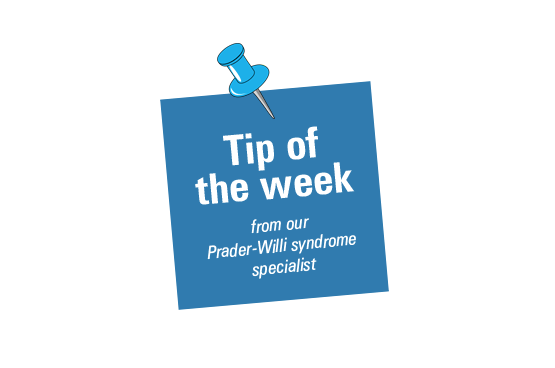Hypothermia: symptoms and precautions
January 18, 2019
As a winter storm moves across the country, bringing snow, ice, and cold temperatures to New England this weekend, it’s the opportune time to share a reminder about hypothermia, its warning signs, and precautions to take.
Hypothermia is a serious medical emergency that occurs when your body cannot produce heat as quickly as it loses heat. Your nervous system and all internal organs are affected when hypothermia sets in. Hypothermia for individuals with Prader-Willi syndrome can set in sooner and be more difficult to diagnose. Because of this, it is imperative that winter-time precautions are in place.
The following are the symptoms of hypothermia (in the typical population as well as in the person with PWS):
•shivering
•lack of coordination
•stumbling
•confusion
•drowsiness and/or low energy
•slow breathing or shallow breathing
•very weak pulse
•body temperature below 95 degrees F
For the person with PWS, lack of coordination, weak pulse, shallow breathing, and low energy may be baseline, so it is important to tell any medical professional what the person’s typical presentation looks like. It may also be difficult for a person with PWS to accurately describe the pain they are feeling.
Here are some precautions that you may want to take:
•Keep an emergency box in your car including blankets and hand and feet warmers. Many people experience hypothermia and frostbite when their car breaks down in frigid temperatures.
•If your child runs away often, consider a GPS location bracelet or anklet so they can be found easily. This device has saved lives.
•Plan ahead for storms and inclement weather so you are able to stay indoors. If you need to leave home, consider having someone come to your home to watch your child instead of having them leave the house. It only takes a few minutes of exposure to cause serious damage.
If you suspect that your child may be suffering from hypothermia, call for emergency medical help immediately.
Patrice Carroll is Latham Centers’ world-renowned Prader-Willi syndrome specialist. She works with Latham’s residents with PWS, their families, and consultants, continuously learning and teaching about PWS best practices. Do you have questions for our PWS specialist? Submit your “tip” topics or general questions to TipTopics@LathamCenters.org.

